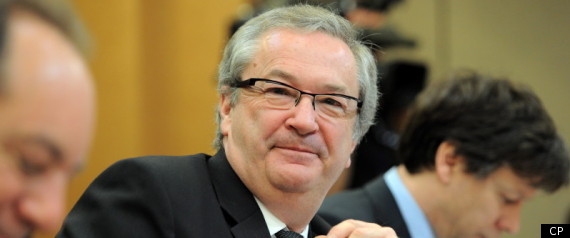OTTAWA — Finance Minister Jim Flaherty's budget takes aim at the federal government's environmental critics, while reducing its own internal resources for promoting sustainable development.
The budget tabled Thursday proposes a few environmental protection measures. In contrast, it contains an $8-million plan to crack down on conservation groups, while maintaining the status quo on substantial tax incentives for the oil and gas sector.
The budget also proposes to eliminate a key federal advisory panel on business and environmental issues — and its $5.2 million annual budget — which is headed by Flaherty's former chief of staff, David McLaughlin.
The National Round Table on the Environment and the Economy, originally established in the 1990s to advise the prime minister, regularly produced reports that challenged the business and environmental policies of the government, particularly regarding climate change.
The proposed crackdown on charities would add new resources to the Canada Revenue Agency to monitor and restrict environmental groups from sending out emails to supporters and other activities that are considered to be political in nature.
The budget tabled Thursday proposes a few environmental protection measures. In contrast, it contains an $8-million plan to crack down on conservation groups, while maintaining the status quo on substantial tax incentives for the oil and gas sector.
The budget also proposes to eliminate a key federal advisory panel on business and environmental issues — and its $5.2 million annual budget — which is headed by Flaherty's former chief of staff, David McLaughlin.
The National Round Table on the Environment and the Economy, originally established in the 1990s to advise the prime minister, regularly produced reports that challenged the business and environmental policies of the government, particularly regarding climate change.
The proposed crackdown on charities would add new resources to the Canada Revenue Agency to monitor and restrict environmental groups from sending out emails to supporters and other activities that are considered to be political in nature.


















